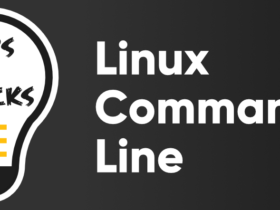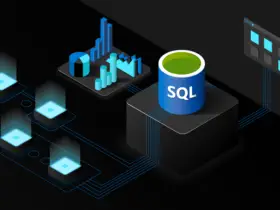

A curated list of awesome DevOps tools, technologies, platforms and resources. Things to help/grow you in DevOps or SRE area.
Cloud Platforms
Public and Private Cloud Platforms.
- Amazon Web Services (AWS) – Cloud Computing Services.
- Google Cloud Platform (GCP) – Cloud Computing Services.
- Azure – Cloud Computing Platform & Services.
- Alibaba Cloud – integrated suite of cloud products and services.
- Oracle Cloud – comprehensive and fully integrated stack of cloud applications and platform services.
- DigitalOcean – helping developers easily build, test, manage, and scale applications of any size.
- Scaleway – single way to create, deploy and scale your infrastructure in the cloud.
- Vultr – easily deploy cloud servers, bare metal, and storage worldwide.
- VMware Cloud – run, manage, connect and protect all of your apps on any cloud.
- IBM Cloud – tools, data & APIs to make AI real now.
- Stackpath – platform of computing infrastructure and services built at the edge of the cloud.
- Linode – accelerate innovation in the cloud, virtual computing must be more accessible, affordable, and simple.
Open Source Cloud Platforms
Private, Public and Hybrid open source Cloud Platforms.
- Openstack – open source software for creating private and public clouds.
- Apache CloudStack – designed to deploy and manage large networks of virtual machines.
- OpenNebula – build Private Clouds and manage Data Center virtualization based on KVM, LXD and VMware.
- Eucalyptus – building AWS-compatible private and hybrid clouds.
- DC/OS – distributed operating system based on the Apache Mesos distributed systems kernel.
- Apache Mesos – program against your datacenter like it’s a single pool of resources.
- Localstack – fully functional local AWS cloud stack. Develop and test your cloud & Serverless apps offline.
Operating Systems
Operating Systems – Server Platform.
- Ubuntu
- CentOS
- CoreOS – the pioneering lightweight container host.
- OSv – versatile modular unikernel designed to run unmodified Linux applications securely on micro-VMs in the cloud.
- Rancher OS – a lightweight, secure Linux distribution, built from containers to run containers well.
- Atomic – use immutable infrastructure to deploy and scale your containerized applications.
- Photon – Linux container host optimized for cloud-native applications, cloud platforms, and VMware infrastructure.
Distributed Filesystems
Network distributed filesystems.
- Ceph – highly scalable object, block and file-based storage under one whole system.
- Gluster – free and open source software scalable network filesystem.
- LINBIT – create, remove, and replicate block storage devices for datacenter scale environments.
- XtreemFS – fault-tolerant distributed file system for all storage needs.
- min.io – high performance, distributed object storage system.
Applications Platforms
Applications management platforms, Containers platform and Containers management.
- Openshift – the Kubernetes platform for big ideas.
- Dokku – helps you build and manage the lifecycle of applications.
- Flynn – open source platform (PaaS) for running applications in production.
- Docker – create, deploy, and run applications by using containers.
- Docker Compose – define and run multi-container applications with Docker.
- Docker Swarm – Docker-native clustering system.
- Kubernetes – automating deployment, scaling, and management of containerized applications.
- LXC – lets Linux users easily create and manage system or application containers.
- Rancher – lets you deliver Kubernetes-as-a-Service.
- OpenVz – container-based virtualization for Linux.
- Singularity – run the application from the local environment to the cloud.
- AppScale – easy-to-manage serverless platform for building and running scalable web and mobile applications.
- Kata Containers – building lightweight virtual machines that seamlessly plug into the containers ecosystem.
- K3S – The certified Kubernetes distribution built for IoT and Edge computing.
- Podman – a tool for managing OCI containers and pods.
Container Image Registry
Container Image registry.
- Quay – container image registry that enables you to build, organize, distribute, and deploy containers.
- Dockyard – Container & Artifact Repository.
- Harbor – an open source trusted cloud native registry project that stores, signs, and scans content.
Cloud Platforms
Public and Private Cloud Platforms.
- Amazon Web Services (AWS) – Cloud Computing Services.
- Google Cloud Platform (GCP) – Cloud Computing Services.
- Azure – Cloud Computing Platform & Services.
- Alibaba Cloud – integrated suite of cloud products and services.
- Oracle Cloud – comprehensive and fully integrated stack of cloud applications and platform services.
- DigitalOcean – helping developers easily build, test, manage, and scale applications of any size.
- Scaleway – single way to create, deploy and scale your infrastructure in the cloud.
- Vultr – easily deploy cloud servers, bare metal, and storage worldwide.
- VMware Cloud – run, manage, connect and protect all of your apps on any cloud.
- IBM Cloud – tools, data & APIs to make AI real now.
- Stackpath – platform of computing infrastructure and services built at the edge of the cloud.
- Linode – accelerate innovation in the cloud, virtual computing must be more accessible, affordable, and simple.
Open Source Cloud Platforms
Private, Public and Hybrid open source Cloud Platforms.
- Openstack – open source software for creating private and public clouds.
- Apache CloudStack – designed to deploy and manage large networks of virtual machines.
- OpenNebula – build Private Clouds and manage Data Center virtualization based on KVM, LXD and VMware.
- Eucalyptus – building AWS-compatible private and hybrid clouds.
- DC/OS – distributed operating system based on the Apache Mesos distributed systems kernel.
- Apache Mesos – program against your datacenter like it’s a single pool of resources.
- Localstack – fully functional local AWS cloud stack. Develop and test your cloud & Serverless apps offline.
Operating Systems
Operating Systems – Server Platform.
- Ubuntu
- CentOS
- CoreOS – the pioneering lightweight container host.
- OSv – versatile modular unikernel designed to run unmodified Linux applications securely on micro-VMs in the cloud.
- Rancher OS – a lightweight, secure Linux distribution, built from containers to run containers well.
- Atomic – use immutable infrastructure to deploy and scale your containerized applications.
- Photon – Linux container host optimized for cloud-native applications, cloud platforms, and VMware infrastructure.
Distributed Filesystems
Network distributed filesystems.
- Ceph – highly scalable object, block and file-based storage under one whole system.
- Gluster – free and open source software scalable network filesystem.
- LINBIT – create, remove, and replicate block storage devices for datacenter scale environments.
- XtreemFS – fault-tolerant distributed file system for all storage needs.
- min.io – high performance, distributed object storage system.
Applications Platforms
Applications management platforms, Containers platform and Containers management.
- Openshift – the Kubernetes platform for big ideas.
- Dokku – helps you build and manage the lifecycle of applications.
- Flynn – open source platform (PaaS) for running applications in production.
- Docker – create, deploy, and run applications by using containers.
- Docker Compose – define and run multi-container applications with Docker.
- Docker Swarm – Docker-native clustering system.
- Kubernetes – automating deployment, scaling, and management of containerized applications.
- LXC – lets Linux users easily create and manage system or application containers.
- Rancher – lets you deliver Kubernetes-as-a-Service.
- OpenVz – container-based virtualization for Linux.
- Singularity – run the application from the local environment to the cloud.
- AppScale – easy-to-manage serverless platform for building and running scalable web and mobile applications.
- Kata Containers – building lightweight virtual machines that seamlessly plug into the containers ecosystem.
- K3S – The certified Kubernetes distribution built for IoT and Edge computing.
- Podman – a tool for managing OCI containers and pods.
Container Image Registry
Container Image registry.
- Quay – container image registry that enables you to build, organize, distribute, and deploy containers.
- Dockyard – Container & Artifact Repository.
- Harbor – an open source trusted cloud native registry project that stores, signs, and scans content.
Automation & Orchestration
Tools for automation, orchestration, deployment, provisioning and configuration management.
- Ansible – simple IT automation platform that makes your applications and systems easier to deploy.
- Salt – automate the management and configuration of any infrastructure or application at scale.
- Puppet – unparalleled infrastructure automation and delivery.
- Chef – automate infrastructure and applications.
- Juju – simplifies how you configure, scale and operate today’s complex software.
- Rundeck – Runbook Automation For Modernizing Your Operations.
- StackStorm – connects all your apps, services, and workflows. Automate DevOps your way.
- Bosh – release engineering, deployment, and lifecycle management of complex distributed systems.
- Cloudify – Connect, Control, & Automate from core to edge: unlimited locations, clouds and devices.
- Tsuru – an extensible and open source Platform as a Service software.
- Fabric – high level Python library designed to execute shell commands remotely over SSH.
- Capistrano – A remote server automation and deployment tool.
- Mina – really fast deployer and server automation tool.
- Terraform – use Infrastructure as Code to provision and manage any cloud, infrastructure, or service.
- Pulumi – modern infrastructure as code platform that allows you to use familiar programming languages and tools to build, deploy, and manage cloud infrastructure.
- Packer – build Automated Machine Images.
- Vagrant – Development Environments Made Easy.
- Foreman – complete lifecycle management tool for physical and virtual servers.
- Nomad – deploy and Manage Any Containerized, Legacy, or Batch Application.
- Marathon – a production-grade container orchestration platform for DC/OS and Apache Mesos.
- Atlantis – Terraform Pull Request Automation.
- OctoDNS – managing DNS across multiple providers. DNS as code.
- ManageIQ – Manage containers, virtual machines, networks, and storage from a single platform.
- Ignite – Open Source Virtual Machine (VM) manager with a container UX and built-in GitOps management.
- Spacelift – Flexible orchestration solution for IaC development.
- Atlantis – Terraform Pull Request Automation.
Continuous Integration & Delivery
Continuous Integration, Continuous Delivery and Continuous Delivery. GitOps
- On premises
- Buildbot – automate all aspects of the software development cycle.
- Gitlab CI – pipelines build, test, deploy, and monitor your code as part of a single, integrated workflow.
- Jenkins – automation server for building, deploying and automating any project.
- Drone – a Container-Native, Continuous Delivery Platform.
- Concourse – pipeline-based continuous thing-doer.
- Spinnaker – fast, safe, repeatable deployments for every Enterprise.
- goCD – Delivery and Release Automation server.
- Teamcity – enterprise-level CI and CD.
- Bamboo – tie automated builds, tests, and releases together in a single workflow.
- Integrity – Continuous Integration server.
- Zuul – drives continuous integration, delivery, and deployment systems with a focus on project gating.
- Argo – Open Source Kubernetes native workflows, events, CI and CD.
- Strider – Continuous Deployment/Continuous Integration platform.
- Evergreen – A Distributed Continuous Integration System from MongoDB.
- werf – Open Source CI/CD tool for building Docker images & deploying them to Kubernetes using a GitOps approach.
- Flux – automatically ensures that the state of your Kubernetes cluster matches the configuration you’ve supplied in Git.
- Flagger – progressive delivery Kubernetes operator (Canary, A/B Testing and Blue/Green deployments).
- Tekton – powerful and flexible open-source framework for creating CI/CD systems.
- PipeCD – Continuous Delivery for Declarative Kubernetes, Serverless and Infrastructure Applications.
- Gitploy – Build the deployment system around GitHub in minutes.
- Public Services
- Travis CI – easily sync your projects, you’ll be testing your code in minutes.
- Circle CI – powerful CI/CD pipelines that keep code moving.
- Bitrise – CI/CD for mobile applications.
- Buildkite – run fast, secure, and scalable continuous integration pipelines on your own infrastructure.
- Cirrus CI – continuous integration system built for the era of cloud computing.
- Codefresh – GitOps automation platform for Kubernetes apps.
- Github actions – GitHub Actions makes it easy to automate all your software workflows, now with world-class CI/CD.
Source Code Management
Source Code management, Git-repository manager, Version Control. Some of them include Code review.
- Github – helps developers store and manage their code, as well as track and control changes to their code.
- Gitlab – entire DevOps lifecycle in one application.
- Bitbucket – gives teams one place to plan projects, collaborate on code, test, and deploy
- Phabricator – a collection of web applications which help software companies build better software.
- Gogs – a painless self-hosted Git service.
- Gitea – a painless self-hosted Git service.
- Gitblit – pure Java Git solution for managing, viewing, and serving Git repositories.
Web Servers
Web servers and reverse proxy.
- Nginx – high performance load balancer, web server and reverse proxy.
- Apache – web server and reverse proxy.
- Caddy – web server with automatic HTTPS.
- Cherokee – highly concurrent secured web applications.
- Lighttpd – optimized for speed-critical environments while remaining standards-compliant, secure and flexible.
- Uwsgi – application server container.
SSL
Tools for automating the management of SSL certificates.
- Certbot – automate using Let’s Encrypt certificates on manually-managed websites to enable HTTPS.
- Let’s Encrypt – free, automated, and open Certificate Authority.
- Cert Manager – K8S add-on to automate the management and issuance of TLS certificates from various issuing sources.
Databases
Relational (SQL) and non-relational (NoSQL) databases.
- Relational (SQL)
- PostgreSQL – powerful, open source object-relational database system.
- MySQL – open-source relational database management system.
- MariaDB – fast, scalable and robust, with a rich ecosystem of storage engines, plugins and many other tools.
- SQLite – small, fast, self-contained, high-reliability, full-featured, SQL database engine.
- Non-relational (NoSQL)
- Casandra – manage massive amounts of data, fast, without losing sleep.
- Apache HBase – distributed, versioned, non-relational database.
- Couchdb – database that completely embraces the web.
- Elasticsearch – distributed, RESTful search and analytics engine capable of addressing a growing number of use cases.
- MongoDB – general purpose, document-based, distributed database built for modern applications.
- Rethinkdb – open-source database for the realtime web.
- Key-Value
- Couchbase – distributed multi-model NoSQL document-oriented database that is optimized for interactive applications.
- Leveldb – fast key-value storage library.
- Redis – in-memory data structure store, used as a database, cache and message broker.
- RocksDB – a library that provides an embeddable, persistent key-value store for fast storage.
- Etcd – distributed reliable key-value store for the most critical data of a distributed system.
Observability & Monitoring
Observability, Monitoring, Metrics/Metrics collection and Alerting tools.
- Sensu – Simple. Scalable. Multi-cloud monitoring.
- Alerta – scalable, minimal configuration and visualization monitoring system.
- Cabot – self-hosted, easily-deployable monitoring and alerts service.
- Amon – modern server monitoring platform.
- Flapjack – monitoring notification routing + event processing system.
- Icinga – monitors availability and performance, gives you simple access to relevant data and raises alerts.
- Monit – managing and monitoring Unix systems.
- Naemon – fast, stable and innovative while giving you a clear view of the state of your network and applications.
- Nagios – computer-software application that monitors systems, networks and infrastructure.
- Sentry – error monitoring that helps all software teams discover, triage, and prioritize errors in real-time.
- Shinken – monitoring framework.
- Zabbix – mature and effortless monitoring solution for network monitoring and application monitoring.
- Glances – monitoring information through a curses or Web based interface.
- Healthchecks – cron monitoring tool.
- Bolo – building distributed, scalable monitoring systems.
- cAdvisor – analyzes resource usage and performance characteristics of running containers.
- ElastiFlow – network flow monitoring (Netflow, sFlow and IPFIX) with the Elastic Stack.
- Co-Pilot – system performance analysis toolkit.
- Metrics/Metrics collection
- Thundra Foresight – visibility into CI pipeline by spotting test failures in no time.
- Prometheus – power your metrics and alerting with a leading open-source monitoring solution.
- Collectd – the system statistics collection daemon.
- Facette – time series data visualization software.
- Grafana – analytics & monitoring solution for every database.
- Graphite – store numeric time-series data and render graphs of this data on demand.
- Influxdata – time series database.
- Netdata – instantly diagnose slowdowns and anomalies in your infrastructure.
- Freeboard – real-time dashboard builder for IOT and other web mashups.
- Logs Management
- Anthracite – an event/change logging/management app.
- Graylog – free and open source log management.
- Logstash – collect, parse, transform logs.
- Fluentd – data collector for unified logging layer.
- Flume – distributed, reliable, and available service for efficiently collecting, aggregating, and moving logs.
- Heka – stream processing software system.
- Kibana – explore, visualize, discover data.
- Loki – horizontally-scalable, highly-available, multi-tenant log aggregation system inspired by Prometheus.
- Status
- Cachet – beautiful and powerful open source status page system.
Service Discovery & Service Mesh
Service Discovery, Service Mesh and Failure detection tools.
- Consul – connect and secure any service.
- Serf – decentralized cluster membership, failure detection, and orchestration.
- Doozerd – a consistent distributed data store.
- Zookeeper – centralized service for configuration, naming, providing distributed synchronization, and more.
- Etcd – distributed, reliable key-value store for the most critical data of a distributed system.
- Istio – connect, secure, control, and observe services.
- Kong – deliver performance needed for microservices, service mesh, and cloud native deployments.
- Linkerd – service mesh for Kubernetes and beyond.
Chaos Engineering
The discipline of experimenting on a distributed system in order to build confidence in the system’s capability to withstand turbulent conditions in production.
- Chaos Toolkit – the Open Source Platform for Chaos Engineering.
- Chaos Monkey – a resiliency tool that helps applications tolerate random instance failures.
- Toxiproxy – simulate network and system conditions for chaos and resiliency testing.
- Pumba – chaos testing, network emulation and stress testing tool for containers.
API Gateway
API Gateway, Service Proxy and Service Management tools.
- API Umbrella – proxy that sits in front of your APIs.
- Ambassador – Kubernetes-Native API Gateway built on the Envoy Proxy.
- Kong – connect all your microservices and APIs with the industry’s most performant, scalable and flexible API platform.
- Tyk – API and service management platform.
- Cilium – API aware networking and security using BPF and XDP.
- Gloo – feature-rich, Kubernetes-native ingress controller, and next-generation API gateway.
- Envoy – cloud-native high-performance edge/middle/service proxy.
- Traefik – reverse proxy and load balancer for HTTP and TCP-based applications.
- Nginx – high performance reverse proxy.
Code review
Code review. A few of the Source Code Management tools have built-in code review features.
- Gerrit – web-based team code collaboration tool.
- Review Board – web-based collaborative code review tool.
Distributed messaging
Distributed messaging platforms and Queues software.
- Rabbitmq – message broker.
- Kafka – building real-time data pipelines and streaming apps.
- Activemq – Multi-Protocol messaging.
- Beanstalkd – simple, fast work queue.
- NSQ – realtime distributed messaging platform.
- Celery – asynchronous task queue/job queue based on distributed message passing.
- Faktory – repository for background jobs within your application.
- Nats – simple, secure and high performance open source messaging system.
- RestMQ – message queue which uses HTTP as transport.
- Dkron – distributed, fault tolerant job scheduling system.
Programming Languages
Programming languages.
- Python – programming language that lets you work quickly and integrate systems more effectively.
- Ruby – a dynamic, open source programming language with a focus on simplicity and productivity.
- Go – an open source programming language that makes it easy to build simple, reliable, and efficient software.
Chat and ChatOps
Chat and ChatOps.
- Rocket – open source team communication.
- Mattermost – messaging platform that enables secure team collaboration.
- Zulip – real-time chat with an email threading model.
- Riot – a universal secure chat app entirely under your control.
- ChatOps:
Secret Management
Security as code, sensitive credentials and secrets need to be managed, security, maintained and rotated using automation.
- Sops – simple and flexible tool for managing secrets.
- Vault – manage secrets and protect sensitive data.
- Keybase – end-to-end encrypted chat and cloud storage system.
- Vault Secrets Operator – create Kubernetes secrets from Vault for a secure GitOps based workflow.
- Git Secret – a bash-tool to store your private data inside a git repository.
Sharing
A collection of tools to help with sharing knowledge and telling the story.
- Gitbook – modern documentation format and toolchain using Git and Markdown.
- Docusaurus – easy to maintain open source documentation websites.
- Docsify – a magical documentation site generator.
- MkDocs – project documentation with Markdown.
VPN
VPN, routing and firewall.
- OpenVPN – flexible VPN solutions to secure your data communications, whether it’s for Internet privacy,
- Pritunl – enterprise Distributed OpenVPN and IPsec Server.
- VyOS – open source network OS that runs on a wide range of hardware, virtual machines, and cloud providers.
- Algo – set up a personal VPN in the cloud.
- Streisand – sets up a new VPN service nearly automatically.
- Freelan – a peer-to-peer, secure, easy-to-setup, multi-platform, open-source, highly-configurable VPN software.
- Sshuttle – transparent proxy server that works as a poor man’s VPN.
Resources
Books
Books focused on DevOps, DevSecOps and Site Reliability Engineering.
- Effective DevOps: Building a Culture of Collaboration, Affinity, and Tooling at Scale
- Continuous Delivery: Reliable Software Releases through Build, Test, and Deployment Automation
- Hands-On Security in DevOpss
- Site Reliability Engineering
- The Site Reliability Workbook
- Infrastructure as Code: Managing Servers in the Cloud
- The DevOps Handbook
Conferences
The Awesome DevOps is a github repository by Marius Stanca



























Leave a Reply